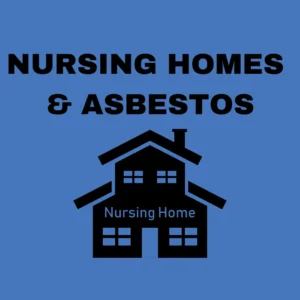Ensuring the safety and well-being of nursing home residents in Pennsylvania is a paramount concern. However, the persistent issue of asbestos exposure continues to plague certain facilities, including Good Shepherd Nursing Home and Gracedale Nursing Home. These specific examples shed light on the ongoing asbestos problems in Pennsylvania nursing homes, emphasizing the urgent need for action to protect the vulnerable residents in 2023.
Good Shepherd Nursing Home, Allentown:
Good Shepherd Nursing Home, located in Allentown, is one such facility grappling with asbestos-related hazards. In 2023, during routine maintenance and inspection, deteriorating asbestos-containing materials were discovered within the building’s infrastructure. Recognizing the potential health risks associated with asbestos exposure, immediate measures were taken to conduct thorough remediation and ensure the safety of residents and staff at Good Shepherd Nursing Home.

Gracedale Nursing Home, Nazareth:
Gracedale Nursing Home in Nazareth is another example of a Pennsylvania nursing home facing asbestos issues. In 2023, a comprehensive evaluation of the facility’s infrastructure revealed the presence of asbestos-containing materials, specifically in the ceiling tiles and insulation. Given the potential for airborne asbestos fibers and subsequent health risks, prompt action was taken to initiate proper abatement procedures, ensuring a secure living environment for the residents and staff at Gracedale Nursing Home.
The Wider Implications:
The above examples underscore the persistent risk of asbestos exposure in Pennsylvania nursing homes. Asbestos, once commonly used for its fire-resistant properties, is now recognized as a significant health hazard, causing serious respiratory illnesses such as lung cancer, mesothelioma, and asbestosis. Although regulations have limited the use of asbestos, its presence in older buildings remains a pressing concern.
The Need for Vigilance and Action:
To protect residents and staff from the dangers of asbestos exposure, Pennsylvania nursing homes must prioritize regular inspections, risk assessments, and timely intervention. Diligent maintenance practices, coupled with proactive asbestos removal or encapsulation, are essential to mitigate these hazards effectively.
State and federal agencies, including the Pennsylvania Department of Health and the Environmental Protection Agency (EPA), play a crucial role in monitoring and enforcing asbestos regulations. Strengthened funding, increased oversight, and education initiatives can further enhance efforts to identify and address asbestos hazards in nursing homes throughout the state.
Conclusion:
Asbestos exposure in Pennsylvania nursing homes remains a significant threat to the health and safety of residents and staff. The specific examples of Good Shepherd Nursing Home and Gracedale Nursing Home highlight the urgent need for comprehensive asbestos management strategies, including regular inspections, timely remediation, and ongoing monitoring. By addressing these issues promptly and effectively, nursing homes can ensure a secure and healthy living environment for their residents in 2023 and beyond.
Here at the Halpern Law Firm, we are here for victims of mesothelioma. We want to make sure that all victims of mesothelioma get the compensation they deserve. If you have been diagnosed with mesothelioma and are interested in receiving compensation, call 800-505-6000 for a free case evaluation today. We are available 24/7.
Sources:
https://gpwlaw.com/job_site/good-shepherd-nursing-home/
https://www.pennsylvanianursinghomeabuselawyerblog.com/asbestos-found-in-gracedale-nu/

Written By Jeff Nelson
Don’t Wait—Contact an Experienced Pennsylvania Mesothelioma Attorney Today!
Now that you know the mesothelioma statute of limitations in Pennsylvania, contact an experienced attorney from our firm to represent your case before time runs out.
At Halpern Law Firm, we help clients throughout Pennsylvania, with offices in Philadelphia, Pittsburgh, Allentown, Scranton and Johnstown. Call us today for a free consultation at (800) 505-6000.
